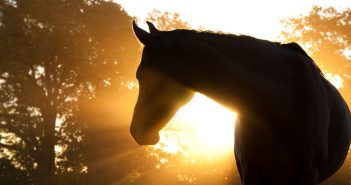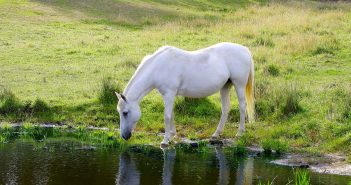Understanding where horses come from has been a long road for most equestrians. Using that new understanding can dramatically change how one handles, cares for, and trains or rides their horse.
“We treat horses the way others tell us to, as well as the way we were treated as children,” says Gwenyth Browning Jones Santagate, of Douglas Massachusetts. “That usually borders on abuse, even for experienced equestrians. My dad taught me that if I REALLY wanted to know about an animal, then I needed to look at things from its own point of view. I later tried the formal, traditional methods and HATED it. When my daughter’s “babysitter” mare was severely abused in our absence, traditional methods of discipline simply didn’t work, so I went back to my feel methods to reclaim the mare’s mind.”
Because of this horrific incident, Gwen vowed never to forget that horses are people, too … just in different bodies. They are kindred spirits with more generous hearts than any human can ever realize.
In her efforts to reach and educate humans, Gwen is holding a two-session teleseminar that focuses first on understanding the psychological underpinnings of the horse, and in the second session, on what to do with that understanding. The sessions are scheduled for June 22, 2005, and July 6, 2005. There is a fee, which includes both sessions, class materials, and some unannounced bonuses.
Patricia Reszetylo has been a horse-addict ever since she first met horses in 1978. Her mother thought it was just a phase, but it seems to be a rather long-lived phase. Patricia is happiest when her life revolves around horses, and has had several businesses that are horse-oriented. She is the author of the horse business ebook, Hor$e Cent$: Infiltrate and Dominate Your Local Equestrian Market Using Pre-Equestrian Classes, and hosts teleseminars on various equine-related topics.



